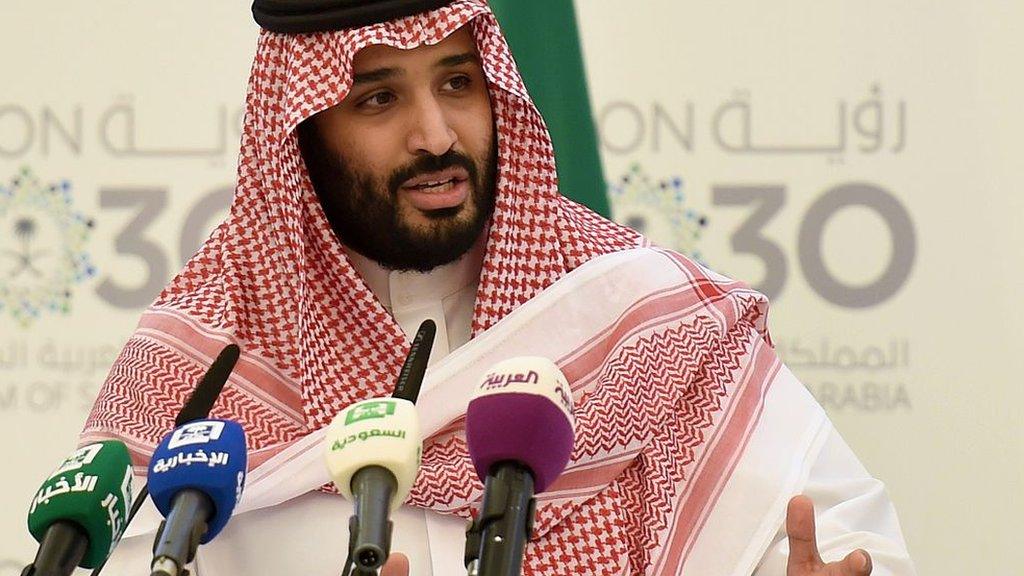Khashoggi case sends chill through Middle East activists
- Published
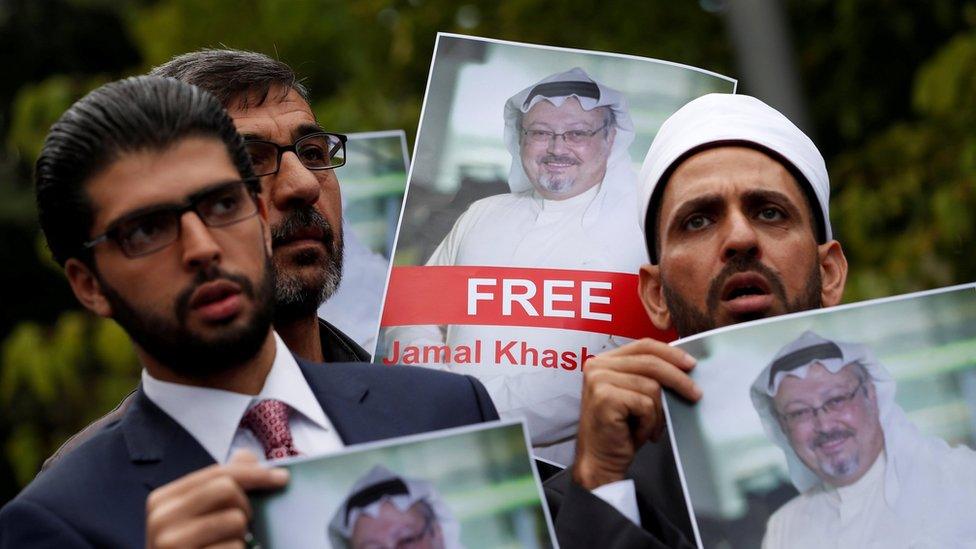
Friends of Jamal Khashoggi and human rights activists staged a protest outside the Saudi consulate in Istanbul
The disappearance and alleged murder of Saudi journalist Jamal Khashoggi has sparked outrage around the world.
It has also sent a chill through writers and activists, in Saudi Arabia and more broadly across the Middle East. They ask: If this could happen to someone as well known and well connected as Mr Khashoggi, a US resident and Washington Post writer, what else could happen to the less well known?
Mr Khashoggi did not position himself as a dissident. A former adviser to two Saudi princes, he criticised some aspects of Saudi policy, like the war in Yemen and the lack of free speech, while praising others, like the social reforms of new Crown Prince Mohamed bin Salman.
He argued for reform rather than regime change - which is a very widespread stance among Saudis. There are many people there who seek a greater voice in how to improve their society without being enemies of the state.
Others who have put their head above the parapet are tracking the reaction of Western countries with deep personal concern. They worry about the implications of US President Donald Trump's comments that Mr Khashoggi was not a US citizen, and that arms sales to Saudi Arabia are too important to give up.
This case has alarmed not only Saudis, but critics from around the Arab world who worry their governments could adopt the tactics of extraterritorial killings associated with Russia or the previous Iraqi and Libyan governments.
Conversely, for some, it also rankles that the wave of revulsion is focused on the fate of a high-profile journalist known personally by many in Washington, more than on the routine ill-treatment of journalists, critics or activists in Saudi Arabia - and elsewhere.
Mr Khashoggi's case is an unusually prominent incident, but it is a symptom of deeper trends - of resurgent authoritarianism and intolerance of free expression.
Clearly, some states see the media's legitimate scrutiny and criticisms as a hard security threat to which they should respond with physical force. This trend is exacerbated by the escalating use of information warfare. "Fake news" alarms everyone, but governments are also using the accusation of "spreading false news" to target freedom of speech.
CCTV footage shows missing Saudi journalist Jamal Khashoggi entering the Saudi consulate in Istanbul.
In Saudi Arabia alone, according to Reporters Without Borders (RWB), 15 journalists have been arrested in the past year.
The NGO says that one Saudi reporter, Fayez bin Damakh, disappeared from Kuwait in 2017 just before he was due to launch a television channel. There has been no update on his whereabouts.
In another indication that the media can be seen as a serious political threat, Saudi Arabia, Egypt, Bahrain and the UAE demanded last year that Qatar shut down the state-funded broadcaster Al Jazeera. They said this was one of the reasons they imposed a trade embargo on Qatar.
But the issue is much wider. As the Jordanian journalist Rami Khouri has written, Khashoggi's case is just the tip of the iceberg of tens of thousands of Arabs imprisoned or killed for speaking their mind.
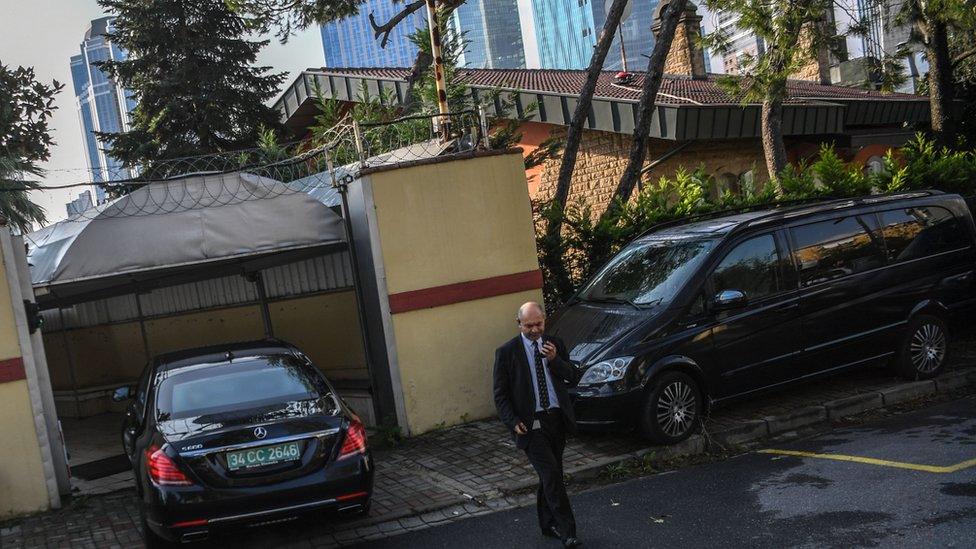
Turkish officials say they have evidence Mr Khashoggi was murdered inside the consulate
In Syria, which vies with Iraq as the world's most dangerous country for journalists, more than 200 have been killed since the start of the conflict. Just this year an award-winning Palestinian-Syrian photographer was confirmed as having died in custody. The Syrian regime has admitted more than 800 such deaths, out of an estimated 82,000 people who were forcibly disappeared.
Meanwhile the family of Marie Colvin, a Sunday Times journalist killed in a shell attack in Syria in 2012, have brought evidence to a US court this year suggesting the Syrian military tracked journalists' mobile phones in order to target and kill them.
Non-state armed groups have also killed journalists and taken them as hostages, with the Islamic State group even forcing them to make propaganda films.
Turkey, which has led the outcry against Mr Khashoggi's disappearance from the Saudi consulate in Istanbul, is itself the biggest jailer of journalists in the world. Iran, where media have been reporting the Khashoggi case extensively, has its own record of repressing and harassing journalists. American-Iranian journalist Jason Rezaian, who was imprisoned in Iran, subsequently became a close colleague of Mr Khashoggi at the Washington Post.
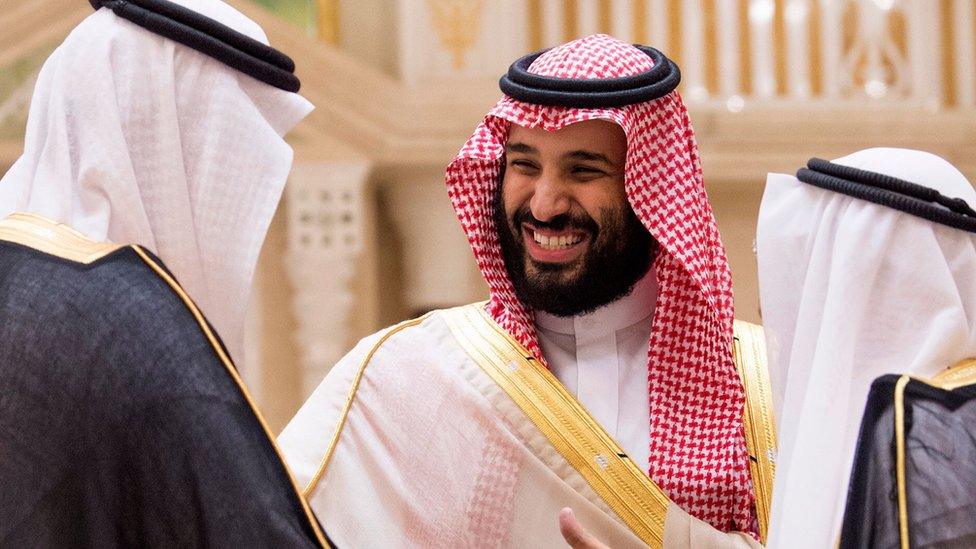
Saudi Crown Prince Mohamed bin Salman faces a backlash over the disappearance
There is a clear global trend of growing threats to journalists. According to the Committee to Protect Journalists, a record 262 journalists were jailed worldwide in 2017, and 18 were killed. This year alone, 27 have been murdered. Viktoria Marinova, a Bulgarian journalist who highlighted corruption was raped and murdered the same week that Mr Khashoggi disappeared.
States have played a part in this alarming trend, and it may reflect a broader sense among authoritarian governments that 70 years on from the Universal Declaration of Human Rights, the leaders of the world's biggest economies and military powers have a diminished interest in protecting human rights or free speech. Even in the US, where free speech is constitutionally protected, President Trump has said his critics in the media are "enemies of the people".
With Turkey now setting up a joint investigation into Mr Khashoggi's death with Saudi Arabia, despite having said it has evidence of Saudi responsibility, the case may well become a geopolitical bargaining chip. So far, the outrage over the disappearance has been unmatched by calls for systemic and structural changes when it comes to intolerance and free speech, in Saudi Arabia and elsewhere. But if the case is seen as a symptom of these deeper trends, this is what is needed.
Jane Kinninmont is a Middle East expert and Head of Programmes at The Elders Foundation - an independent group of eminent global leaders. The article is Ms Kinninmont's analysis, not a collective view of the Elders. Twitter: @janekinninmont, external
- Published22 October 2018
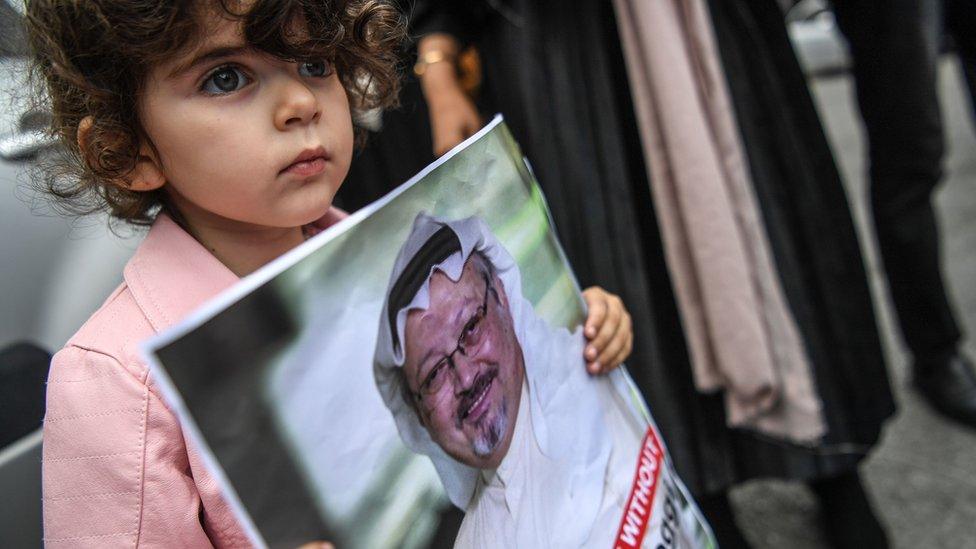
- Published10 October 2018
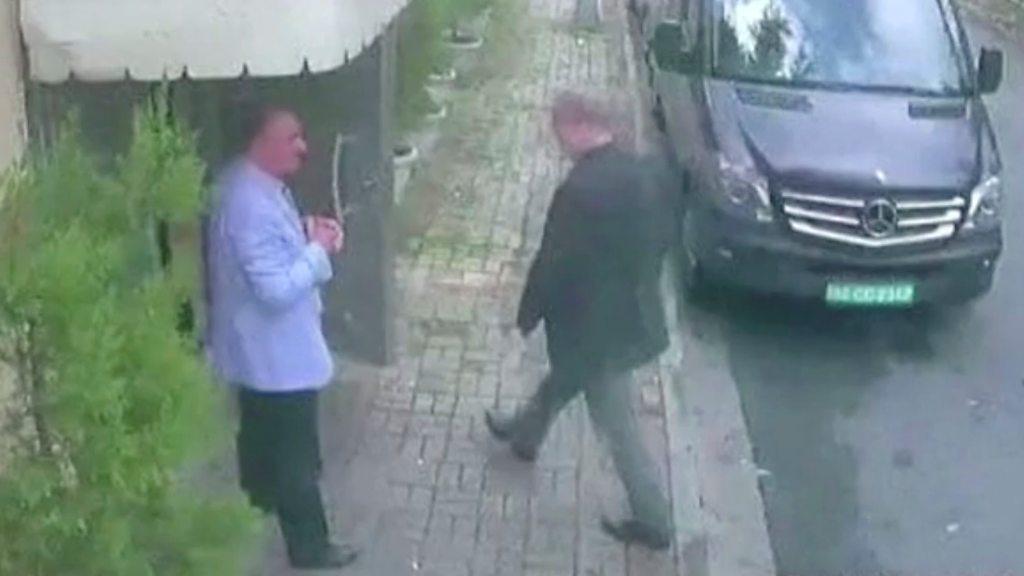
- Published6 October 2020
